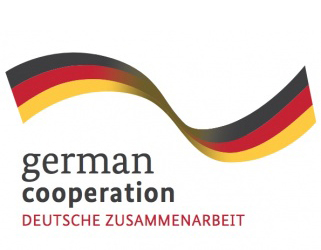Community / Land projects / ACRES - Agricultural Climate Resilience to El-Nino in sub-Saharan Africa
ACRES - Agricultural Climate Resilience to El-Nino in sub-Saharan Africa

€394008.2363
04/16 - 12/17
Completed
This project is part of
Implementing Organisations
Donors
Data Providers
General
El Niño related droughts are leaving many millions of southern African smallholder farmers facing hunger, whilst at the same time above average rains are being experienced in parts of East Africa. The differential impacts of extreme events on farmers who have adapted their land management practices to become more "climate-smart" are poorly understood and quantified. Assessing the impacts of Conservation Agriculture (CA) on climate resilience of smallholder farming systems is the focus of this comparative ACRES project led by an experienced cross-disciplinary team. A temporal component to studies will be enabled by links to past and ongoing studies in SE Kenya and southern Malawi. The wider significance of such new data will be contextualised through a continent wide meta-analysis of past CA studies that will provide an easily accessible database and identification of climate specific land management advice to global partner organisations to provide context-relevant guidance on Climate Smart Agriculture practices. This will provide vital insights on the contributions of CA to enhancing climate resilience of agricultural livelihoods and explicit consideration of societal and gendered components of farmer decision-making which have been stressed as urgent needs by development NGOs and Government agencies alike. The current El Niño event offers an opportunity for repeat study of crop pest issues in the Kenya case, especially given the recognised similarity to the 1997/98 event (NOAA, 2015). This project will also enable comparison with Malawi studies where an ongoing research programme is exploring CA decision-making, use of climate service information and monitoring of crop pests under different land management practices. Directly comparable integrated participatory and environmental crop pest survey approaches will be adopted in both case study regions. New evidence on crop pests, diseases and land management decisions will be provided by participatory approaches gaining farmers' observations about crop pests / diseases and will be cross-validated by sampling of grain stores for pests and diseases in both study areas. The comparative case study approach, and its alignment to the wider meta-analysis study, will allow for improved understanding of what works in terms of land management practices enhancing resilience to extreme climate variability. The project outputs will enable lesson learning across locations with improved understanding of the capabilities and limitations of CA in a contextualised way as required to inform extension messages and to guide future CA project planning and institutional support structures. The project stems from a series of multi-stakeholder research planning events led from across the project team in both study countries. This co-production or research priorities will enable us to ensure that ACRES outputs are tailored to the needs of major donors (e.g. World Bank, African Development Bank, DFID), Government Departments, NGOs (Christian Aid, Care International, Concern Worldwide, Total Land Care) and to private sector companies (e.g. Ilovo Sugar in southern Malawi). These multiple stakeholder links (at range of governance levels) will ensure that findings and agricultural land management lessons are shared beyond the smallholder farmers who are the focus of the study.
Objectives
The Global Challenges Research Fund (GCRF) supports cutting-edge research to address challenges faced by developing countries. The fund addresses the UN sustainable development goals. It aims to maximise the impact of research and innovation to improve lives and opportunity in the developing world.



